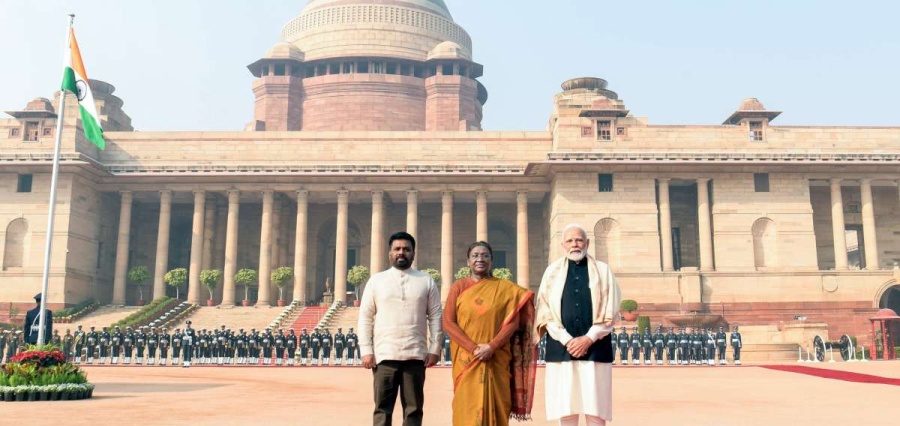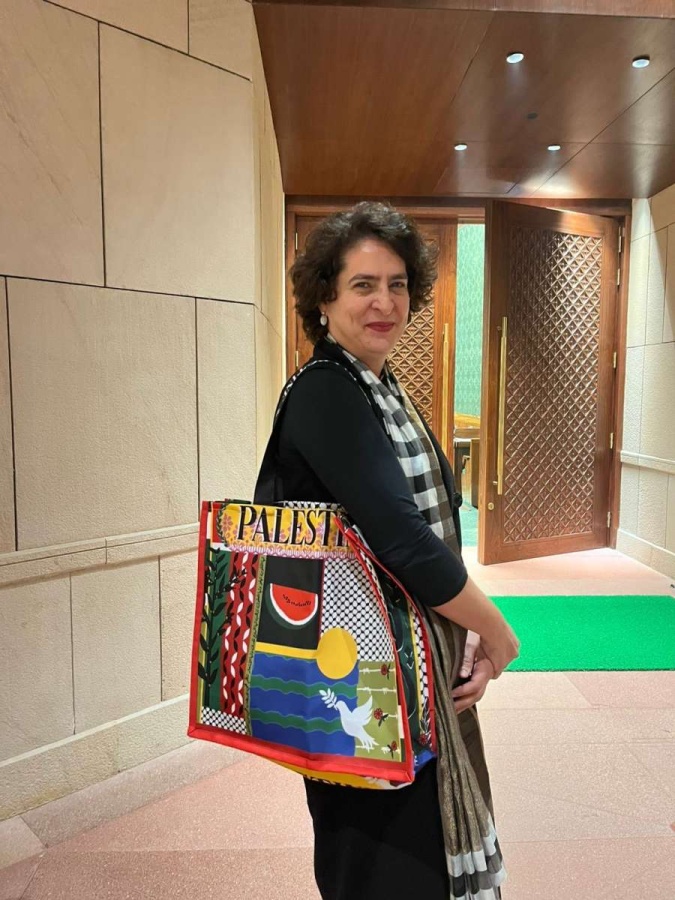Modi and Lankan President Dissanayake agreed to take steps towards the implementation of the solar power project in Sampur and augment its capacity as per the requirements of Lanka as part of energy development…reports Asian Lite News
India and Sri Lanka are discussing cooperation between them and the UAE to implement a multi-product pipeline from India to Sri Lanka for the supply of affordable and reliable energy. This is among energy projects at various stages of consideration between the two countries.
According to a joint statement issued after talks between Prime Minister Narendra Modi and visiting Sri Lankan President Anura Kumara Dissanayake, the two countries agreed to take steps towards the implementation of the solar power project in Sampur and further augment its capacity as per the requirements of Sri Lanka as part of energy development.
“Emphasizing the need for reliable, affordable and timely energy resources for ensuring energy security and meeting basic needs of the people, both leaders underscored the importance of strengthening cooperation in the energy sector and facilitation towards timely implementation of ongoing energy cooperation projects between India and Sri Lanka,” the statement said.
In this regard, the leaders agreed to continue consideration of the several proposals which are in different stages of discussion “including supply of LNG from India to Sri Lanka, establishment of a high-capacity power grid interconnection between India and Sri Lanka and cooperation amongst India, Sri Lanka and UAE to implement a multi-product pipeline from India to Sri Lanka for supply of affordable and reliable energy”.
The also agreed to continue consideration of joint development of offshore wind power potential in Palk Straits, while prioritizing environmental protection including fauna and flora.
“Acknowledging the ongoing cooperation in the development of Trincomalee Tank Farms, both leaders decided to support the development of Trincomalee as a regional energy and industrial hub,” the release said.
The two leaders agreed to expedite the implementation of the Sri Lanka Unique Digital Identity (SLUDI) project to aid the country in its efforts to improve delivery of government services to the public. PM Modi and Dissanayake agreed to collaborate on avenues to fully roll out Digital Public Infrastructure (DPI) in Sri Lanka with assistance from India.
Both leaders agreed to establish a Joint Working Group to explore the implementation of a DPI stack in Sri Lanka based on experience and systems already established in India, including advancing ongoing technical discussions on the implementation of DigiLocker in Sri Lanka.
The two leaders agreed to promote digital financial transactions by extending the use of UPI digital payments for the benefit of both countries and in keeping with payment systems-related regulatory guidelines of both countries.
The two leaders agreed to continue bilateral exchanges to garner learnings from India’s Aadhaar platform, GeM portal, PM Gati Shakti digital platform, digitized customs and other taxation procedures, with a view to exploring the benefits of establishing equivalent systems in Sri Lanka.
With a view to supporting human-resource development and promoting innovation and technology in Sri Lanka, PM Modi and Dissanayake agreed to seek to expand collaboration in research and development in sectors like agriculture, aquaculture, digital economy, health and other areas of mutual interest.
The two leaders agreed to explore cooperation between educational institutions of India and Sri Lanka. They expressed willingness to foster coooperation between Start-up India and Information Communication Technology Agency of Sri Lanka (ICTA), including for mentorship for Sri Lankan start-ups.
Modi and Sri Lankan President Anura Kumara Dissanayake appreciated the ongoing collaboration for the development of the dairy sector in Sri Lanka with the aim of promoting self-sufficiency and nutritional security.
“Noting President Disanayaka’s emphasis on agricultural modernization, the two leaders agreed to establish a Joint Working Group to examine possibilities for the comprehensive development of the agricultural sector in Sri Lanka,” the joint statement said.
Dissanayake reiterated Sri Lanka’s stance on not allowing its territory to be used in any way that could compromise India’s security.
The Ministry of External Affairs (MEA) in ‘India – Sri Lanka Joint Statement: Fostering Partnerships for a Shared Future’ said, “Recognizing shared security interests of India and Sri Lanka, both leaders acknowledged the importance of regular dialogue based on mutual trust and transparency and giving primacy to each other’s security concerns. As natural partners, both leaders underscored the common challenges faced by the two countries in the Indian Ocean Region and reaffirmed their commitment to work together in countering traditional and non-traditional threats as well as to ensure a free, open, safe and secure Indian Ocean Region.”
The MEA added, “India being Sri Lanka’s closest maritime neighbour, President Disanayaka reiterated Sri Lanka’s stated position of not permitting its territory to be used in any manner inimical to the security of India as well as towards regional stability.”
Expressing satisfaction at the ongoing defence cooperation in training, exchange programmes, ship visits, bilateral exercises and assistance to augment defence capabilities, PM Narendra Modi and President Dissanayake agreed to advance maritime and security collaboration. (ANI)
ALSO READ: A Taste of India, in UK: Godawan Artisanal Indian Single Malt














